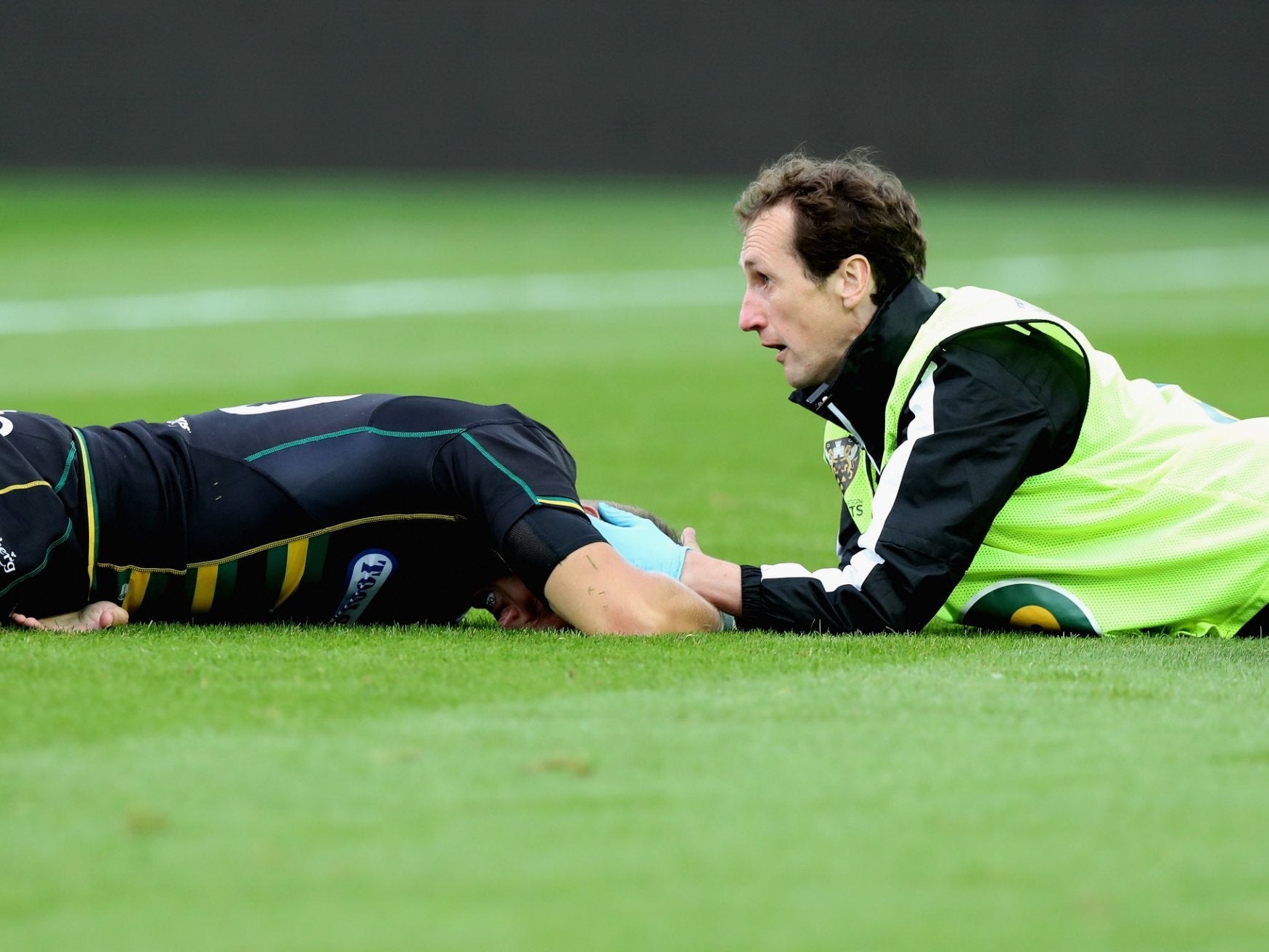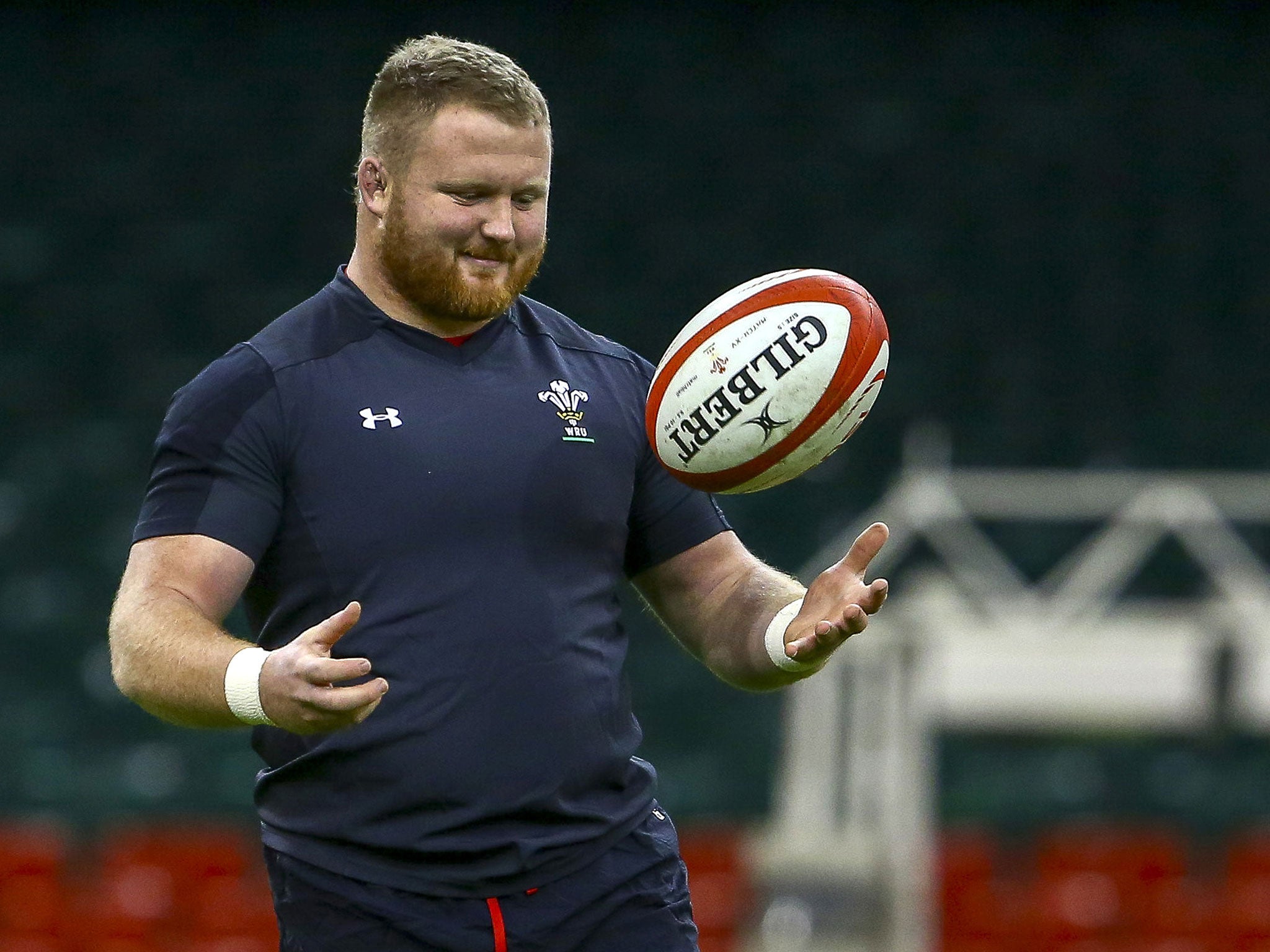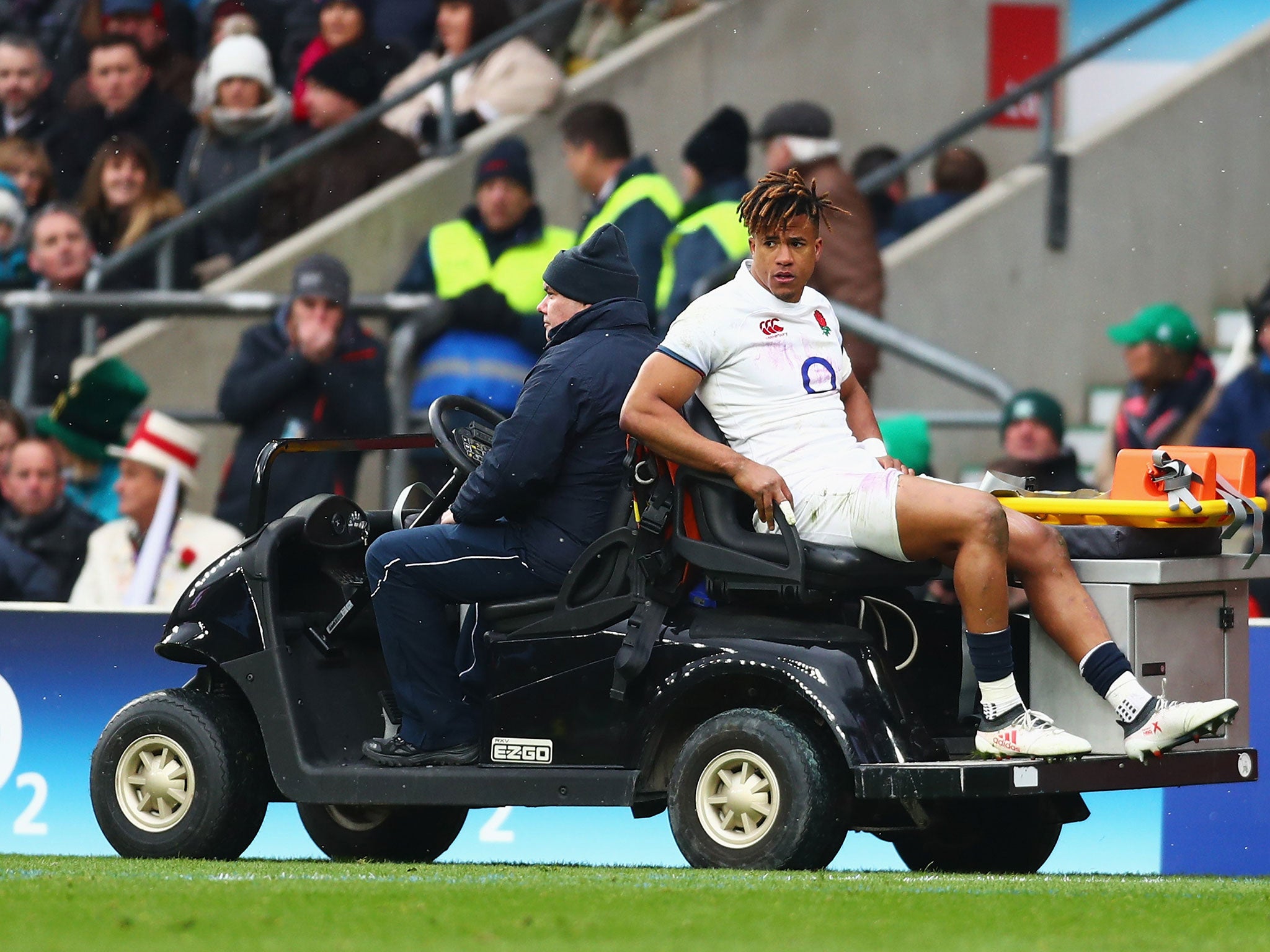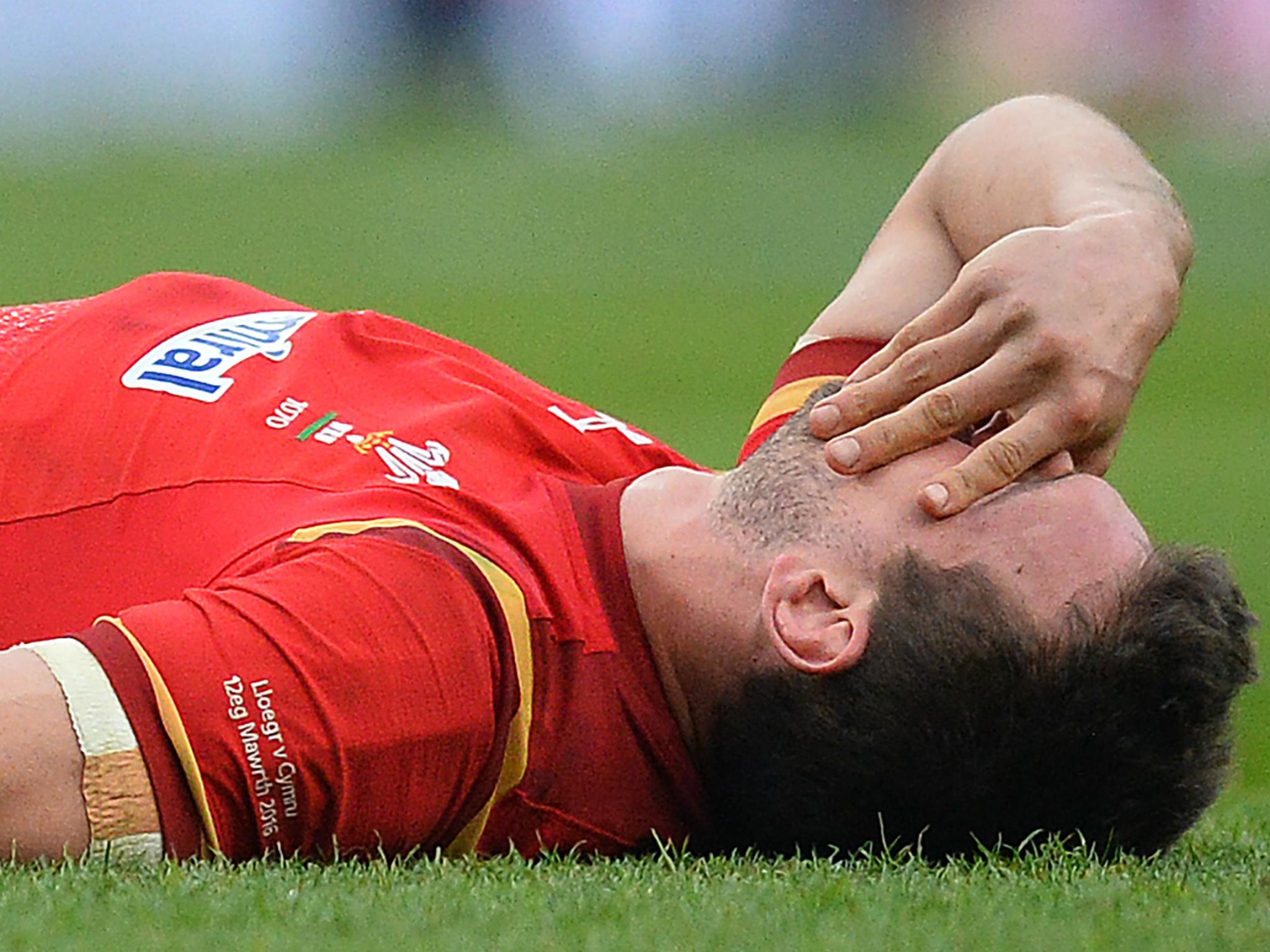Fixture schedules, training regimes and tackle laws: why rugby union cannot afford to ignore its injury crisis anymore
Sam Warburton’s retirement must be a salient one if players are to emerge from shortened careers without debilitating and life-changing injuries that have gone on for too long

Your support helps us to tell the story
From reproductive rights to climate change to Big Tech, The Independent is on the ground when the story is developing. Whether it's investigating the financials of Elon Musk's pro-Trump PAC or producing our latest documentary, 'The A Word', which shines a light on the American women fighting for reproductive rights, we know how important it is to parse out the facts from the messaging.
At such a critical moment in US history, we need reporters on the ground. Your donation allows us to keep sending journalists to speak to both sides of the story.
The Independent is trusted by Americans across the entire political spectrum. And unlike many other quality news outlets, we choose not to lock Americans out of our reporting and analysis with paywalls. We believe quality journalism should be available to everyone, paid for by those who can afford it.
Your support makes all the difference.Another rugby union season dawns and the injury crisis which has dominated the sport’s agenda over the past decade appears to be showing no sign of diminishing.
In fact, the signs appear to be that it’s getting worse.
Rugby’s authorities are trying, no doubt, to reduce this blight on the sport by examining tackle laws and trialling new ways of tackling in a bid to lessen concussions, but there is a growing sense they are shifting deckchairs on the Titanic when drastic action is what’s needed to protect players at the highest level of the game.
In a sport loved by all of us who watch and play it for it’s raw, brutal physicality, an increasing number of reasonable and rational people are coming around to the idea our top players play far too much rugby.
Moves are afoot in the Premiership to drop the maximum number of games permitted in a season from 32 to 30. It’s a welcome step in the right direction. But it is not enough.
With professionals now routinely making anything from 15 to 30 tackles a game, carrying 10 to 15 times and hitting 15 to 20 breakdowns per game while covering anything up to 10 kilometres in 80 minutes, there is no other sport in the world which demands more from its participants. Imagine being in a car crash 32 weekends in a row.
The injury toll is being taken, no matter what some of the pen-pushing bureaucrats masquerading as medics at the top of the sport have tried to argue over the 23 short years since professionalism dawned. It is not alarmist, sensationalist or overly-dramatic to report what is going on in front of our eyes; today’s players are being damaged and will suffer potentially catastrophic long-term problems if we do not institute measures to protect them. And it’s happening on our watch.
This week, a memorable quote from Wayne Pivac. Scarlets director of rugby, soon-to-be Wales head coach and a man who understands the value of protecting players from the unsustainable fixture schedule being foisted on them.

"Samson's had a plate put into his face," Pivac said after his prop Samson Lee fractured his cheekbone in the second minute of his team’s heavy pre-season defeat to Bath.
"He had a head clash early on and unfortunately had a couple of breaks. The plate being inserted is a good thing in terms of time away from the game. He is back in work today and hopefully be available next week."
Titanium plates being inserted in players faces in order to allow them to play a fortnight later – or even a week later in the cases of Brad Barritt, Josh Navidi and others last season. Is that the acceptable face of rugby now? It seems so.
Scarlets will begin their Pro14 season with no fewer than 14 players already on the sidelines injured.
They are not alone in entering a season which for some top internationals will run for almost 22 months with a World Cup next October and summer training camps to factor in, battle-damaged and injury hit by pre-season training schedules which now seem almost as brutal as the season itself.

Bath, Scarlets’ opponents last weekend, were without Anthony Watson (achilles) and Jonathan Joseph (broken foot) following training injuries while their talented young prop Beno Obano continues to suffer the serious consequences of an horrific knee injury suffered in England training last term. He is not expected to feature this season and he faces a seismic challenge to resurrect his career. We wish him well.
The players are getting braver and more power to them. Last weekend the Mail on Sunday reported Watson and fellow England international Joe Marler calling for a radical reduction in matches perhaps at a personal financial cost to themselves.
“I'd rather play fewer games per year, take less money and have a longer career,” said England prop Joe Marler. “Just like I'd rather have a functioning body after rugby and less money, instead of more money and a hip replacement.”
Marler was joined by Watson in echoing the call for a cut in matches.
“Changing the nature of the game isn't the answer,” Watson said. “What's difficult is playing 25-plus games per year and you end up playing at 75 or 80 per cent. These things aren't decided by the players but I'd have thought 20 games maximum is the right number."

Sam Warburton’s retirement at the age of 29 this summer as the direct consequence of crippling long-term knee and neck injuries sent shockwaves through the sport. It really shouldn’t have. Warburton was being urged by some doctors to retire two years ago.
In his first major interview since retiring – with Times reporter and former ghost writer Steve James – Warburton also called for a radical reduction in games, strict limits on contact training and changes to the breakdown area to reduce so-called ‘jackalling’.
Warburton, a two-time British and Irish Lions captain, is one of the most respected figures ever to lace up his boots on a professional rugby field and he must be listened to.
Alarmingly, England’s dual-code centre Ben Te’o spoke this summer about the culture of rushing players back from serious injuries.
“That's sometimes part and parcel with this game. In both codes I've played there are lots of times where you get pressured into coming back early," he said.
NFL players are not asked to put their bodies through one scintilla of the physical battering our top rugby players are asked to and yet we plod on demanding more and more from them.
If Warburton’s story must be a salient one, radical change to fixture schedules, training regimes and tackle laws are required. If not, the cost to everyone will be too large to contemplate.
As we begin a new season, rugby simply cannot afford to plough on like this.
Join our commenting forum
Join thought-provoking conversations, follow other Independent readers and see their replies
Comments